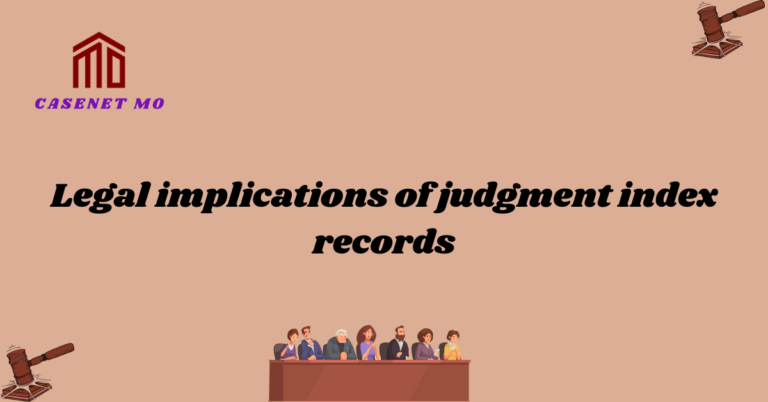Tips for efficient case number searching
Searching for case numbers efficiently is a crucial skill for anyone in the legal profession. Whether you are an attorney, paralegal, or law student, having the ability to locate case numbers quickly and accurately can save you time and frustration. In this guide, we will provide you with valuable tips and techniques to streamline your case number searches, allowing you to focus on what truly matters – building strong legal arguments and providing the best possible representation for your clients.
One of the first steps to efficient case number searching is understanding the structure and format of case numbers. Each jurisdiction may have its own unique system, but there are common elements that can help you navigate through the maze of legal documents. By familiarizing yourself with these elements, such as the court code, case type, and year of filing, you will be able to decipher case numbers with ease.
Understanding the Court Code
When it comes to case number searching, one of the key elements to familiarize yourself with is the court code. The court code is a unique identifier assigned to each court within a jurisdiction. It helps categorize and organize cases, making it easier to locate specific case numbers.
Each court code has its own format and may consist of letters, numbers, or a combination of both. For example, in some jurisdictions, the court code for a local district court may be represented by a letter, such as “D.” In others, it could be a numerical code, such as “01” for the first district court.
By understanding the court code system used in your jurisdiction, you’ll be one step closer to efficiently searching for case numbers.
Deciphering Case Types
Another important element to consider when searching for case numbers is the case type. Case types vary based on the nature of the legal matter, such as criminal, civil, family, or probate cases.
Case types are often represented by specific codes or abbreviations, making it easier to identify the nature of a case. For example, “CR” may represent a criminal case, while “CV” could stand for a civil case.
By familiarizing yourself with the different case types and their corresponding codes, you’ll be able to quickly narrow down your search and focus on relevant cases.
Navigating the Year of Filing
One more crucial element to consider when searching for case numbers is the year of filing. The year of filing provides a timeframe for when a case was initiated, allowing you to narrow down your search to a specific period.
The year of filing is often represented by a four-digit number, such as “2022” for cases filed in the current year. Some jurisdictions may also use a combination of letters and numbers to indicate the year.
By knowing the year of filing, you can streamline your case number search and avoid sifting through irrelevant cases from different years.
Utilizing Online Databases
In today’s digital age, utilizing online databases can greatly enhance your efficiency when searching for case numbers. Many jurisdictions offer online portals or databases where you can access and search for case information.
These databases often provide advanced search options, allowing you to input specific criteria, such as court code, case type, and year of filing, to narrow down your search results. Some databases even offer additional filters, such as party names or case statuses, to further refine your search.
By leveraging the power of online databases, you can save valuable time and effort, as well as access up-to-date case information from the comfort of your own desk.
Implementing Advanced Search Techniques
In addition to understanding the structure and elements of case numbers, there are advanced search techniques that can further optimize your case number searches.
One technique is to use wildcard characters, such as asterisks (*) or question marks (?), in your search queries. These wildcards can represent unknown characters or variations in spelling, allowing you to broaden your search and capture relevant cases.
Another technique is to use Boolean operators, such as “AND,” “OR,” or “NOT,” to refine your search queries. These operators can help you combine or exclude specific criteria, ensuring more accurate search results.
By implementing these advanced search techniques, you can fine-tune your case number searches and retrieve the most relevant and accurate information.
FAQs
What is a case number?
A case number is a unique identifier assigned to a legal case within a court system. It helps track and reference specific cases among the vast volume of legal proceedings.
Where can I find case numbers?
Case numbers are typically found on court documents, including pleadings, motions, judgments, and court orders. They may also be available through online legal databases and court records systems.
How do I search for a case number?
You can search for a case number using online legal databases, court websites, or in-person at the courthouse. Use relevant keywords, parties’ names, and other identifying information to narrow down your search results.
What if I can’t locate the case number?
If you’re having trouble finding a case number, double-check your search criteria for accuracy. Try alternative spellings, variations, or additional keywords. If you still can’t locate the case, consider reaching out to the court clerk for assistance.
Tips for efficient case number searches?
Yes, using advanced search filters, understanding Boolean operators, including relevant keywords, using wildcards, and familiarizing yourself with citation formats can all help streamline your case number search process.
Conclusion
In conclusion, for efficient case number searching, utilize advanced search techniques like Boolean operators and wildcard characters. Organize your search criteria systematically and leverage filters to refine results. Stay updated with new search technologies and seek guidance when needed to streamline the process effectively.







